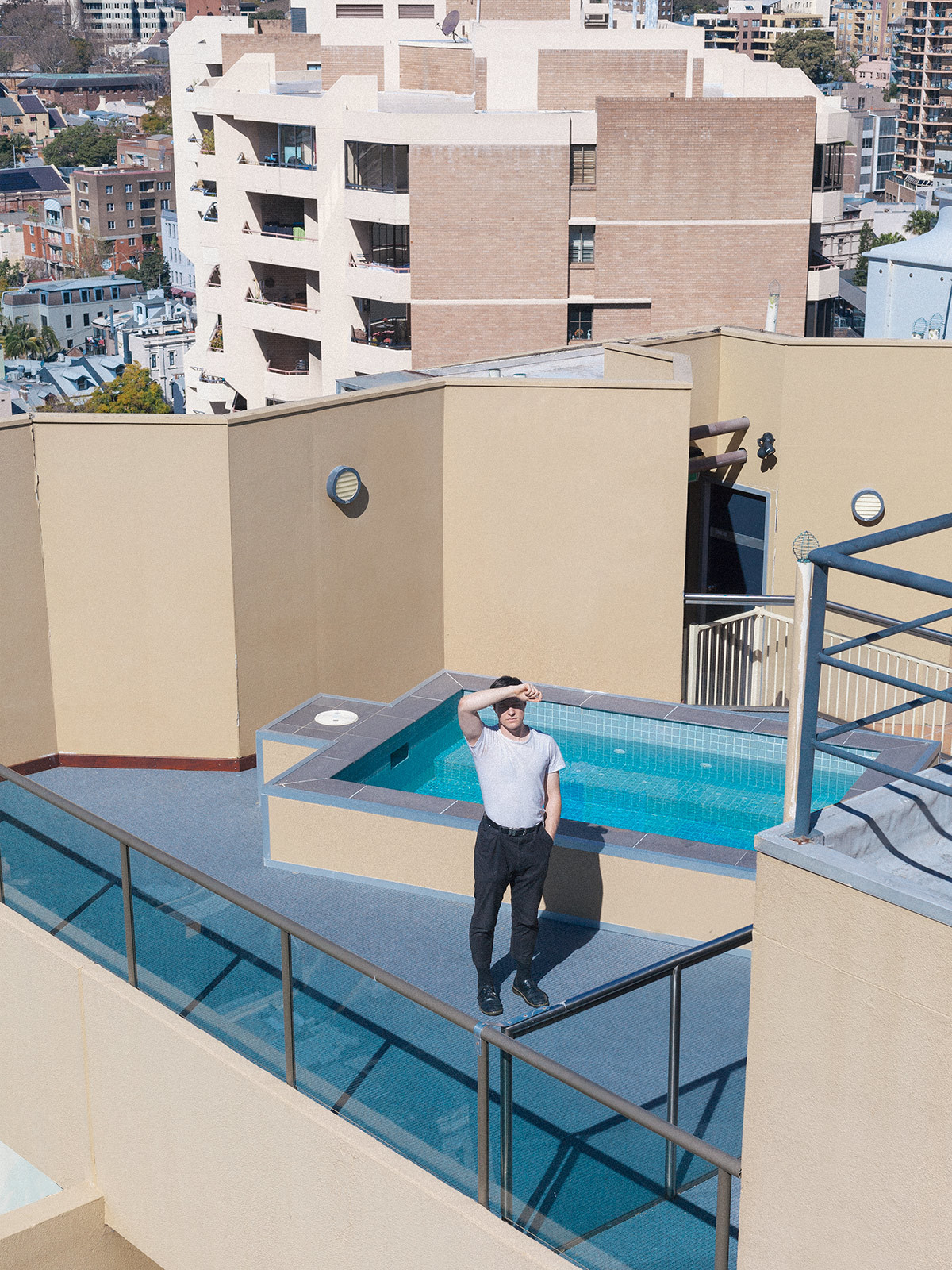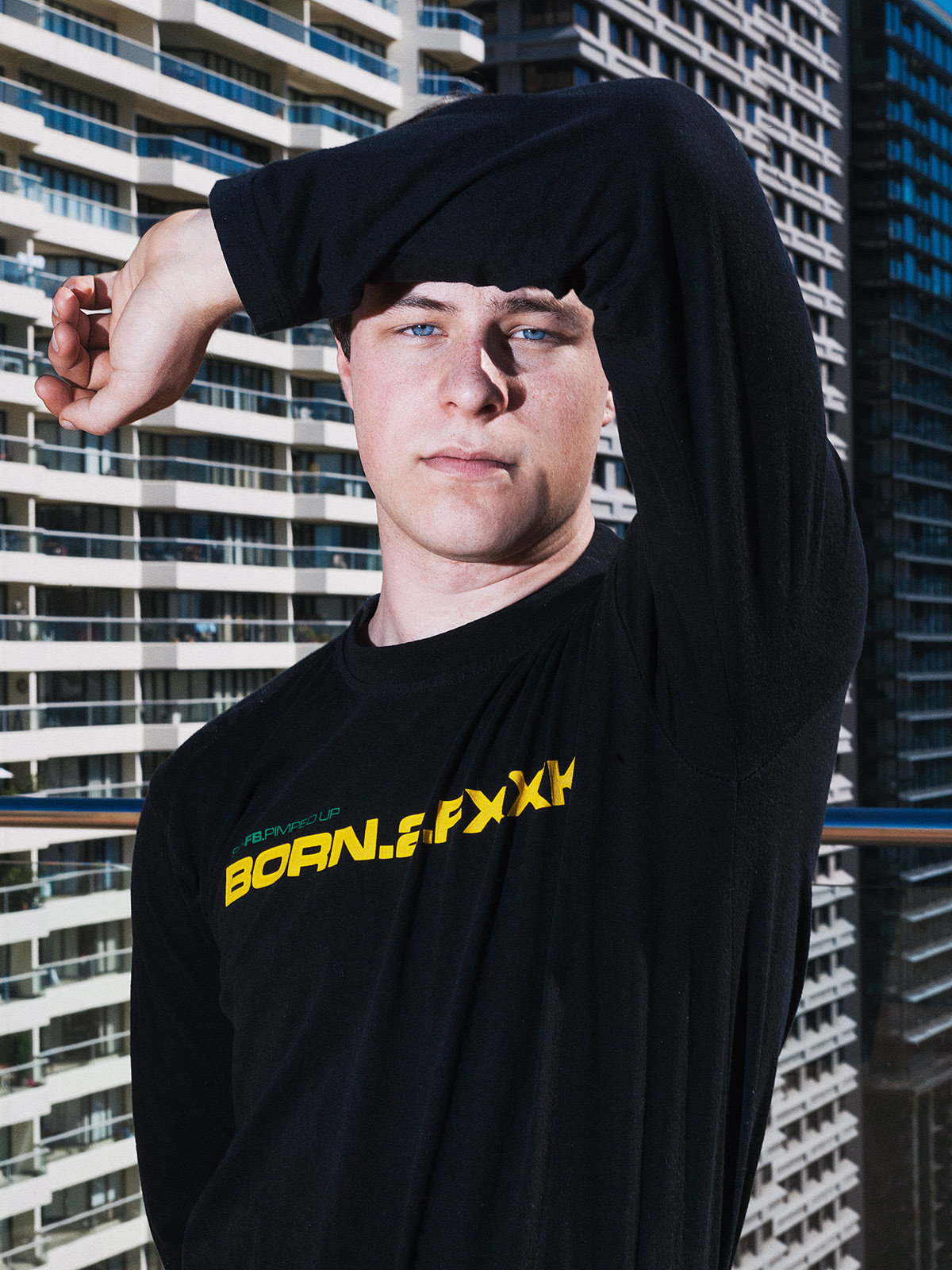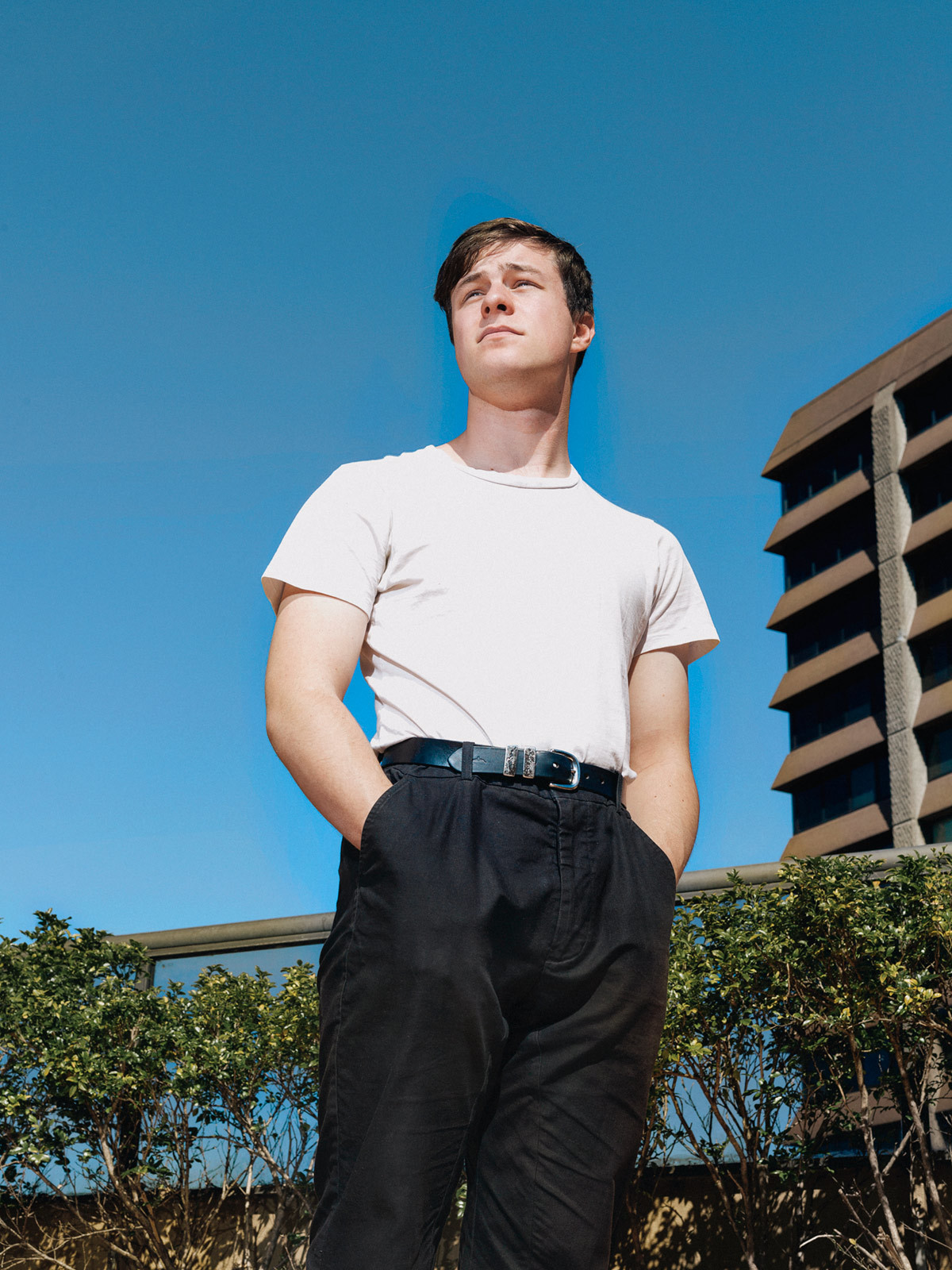Gus McGrath is a multi-instrumentalist and brilliant storyteller. His music, recorded under the name California Girls, is a rare gem of emotive, lyrical and loudly passionate contemporary synth pop. Gus’s first California Girls record Age of Consent tackles romantic separation, betrayal and heartbreak. In his second release, Desire, he sings about lust and obsession over synth lines provided by a second-hand Roland 303. His voice is grinding and sincere, not far from an Australian Morrissey. His songs make you feel sad, angry, loved and lustful — sometimes all at once.
In conversation, Gus is friendly and self effacing; constantly downplaying his acumen as a songwriter. In his eyes he’s a 21-year-old who divides his time between his Art History studies and songwriting. But if you watch him onstage, you see someone very different. Gus becomes a one-man powerhouse: challenging, enigmatic, unstoppable. Here, he meets with i-D to talk about where his music comes from, and where it’s going next.
Tell me about what you’re working on at the moment.
I’m writing a bit of California Girls stuff, but I’m actually playing in other people’s bands more than my own solo act right now. I’ve spent a while in a band called Wives, which does poppy post punk songs, and I’ve been drumming in TV Colours, plus I’m playing bass in a band called New Age Group. I’m also in my third year of my degree — I study Art History and Curatorship, I’m interested in contemporary art. It’s a pretty crazy time. Especially because I still have no idea what the fuck I’m doing when I graduate. I feel like most people don’t have any idea what they’re meant to do when they finish. It’s pretty terrifying.
You sound busy — how do you even have time to shower?
I can’t really handle not doing lots of stuff. If I’m not overloading myself I panic.
Do the the things you’re learning about art history influence the music you play when school’s out?
In some ways. I’m starting to curate art shows more, and I think because I’ve booked a lot of gigs in the past it’s easier to conceptualise. I think about my album art and my visuals at lot more these days too. I think about how I should dress and present as California Girls as well. With Desire, I spoke with my friend Julia Thwaites — who did a lot of the design for it — to get really clear idea of what I wanted the album art to look like.
Your two albums are certainly very cohesive — aesthetically and sonically.
I think Age of Consent is semi-cohesive. Those songs are almost like demos or something. They were recorded in this really primitive way. A lot of it was just me trying to figure out what I was doing. I think the difference between the two records is the focus — Desire looks inwards, it’s about what I feel or what I’m thinking. Age of Consent was me talking to someone else. If I’m gonna do another album I want it to be really considered, not just a bunch of songs thrown together.

Where did you get this musical memory of the eighties, seeing as you were only born in the mid-nineties?
A lot of the synth sounds were done on an MC-303 Groovebox, which is actually more of an early nineties thing. It’s an acidy drum machine and sequencer. Playing live, I also use a microKorg and I recently bought an Alpha Juno 2. I like to play with synth sounds that sound dated, or maybe cheesy. That’s not to say I want the songs to be funny, or tacky — I’m trying to make a really earnest, genuine thing — but I don’t have a zillion dollars I can blow on production. That’s okay with me, because I’ve alway wanted my music to communicate that I’m just a regular person. I don’t really see much point in pretending that I’m a New Wave band from the eighties: I’m making these songs right now.
I like that about California Girls: you’ve made this fantastic danceable music that’s lyrically very sincere.
I was toying with making flat out ‘dance music,’ for a while but I felt weird making music that was just for dancing. That said, I have a track called Hidden with a pretty explicit drop — which is kind of a really obvious, tacky EDM trope — but it’s really enjoyable.
Do you ever just sit down with a guitar and strum out your feelings?
Not really. I’ve never been a hugely acoustic person. I don’t think I have the musical chops to play without the whole… facade. I think I’m more interested in full music, and if you use electronics you can make the same amount of noise as a whole band by yourself.
There’s a line in Skin on Skin that’s one of my favourite lines I’ve heard in any song: “I am the powerhouse.”
It’s a very sexually heated song, I guess it’s coming from the perspective of a kind of obsessive sexual haze. The lyric kind of says, “I’ll do anything I’m a total… sex machine.” It’s really stupidly exaggerated. That’s the thing about songwriting: you can say really fucking weird stuff, things that you definitely couldn’t say in normal conversations, and it’s totally fine somehow. People really like that line, too.
This song opens the first ever California Girls LP you released, too.
It initially wasn’t that way. There an instrumental song I wrote as the album opener. But then I realised no-one really knows who I am, and that would be the first time that most people have heard me. I was like, “maybe an ambient synth track probably isn’t the best introduction.” That’s how X became the opener. I kind of imagined the album as an X Files episode: there’s the intense first scene that sets up the episode, and then you get the opening credits.

It’s powerful.
The funny thing is, I always imagine Desire being way more pathetic. To me it sounds quite unrequited and frustrated. Sometimes California Girls comes across as this really intense lothario, which is really funny to me.
Can you tell me your hometown, Canberra?
Canberra’s great, but it’s also pretty hard. I grew up in Tuggeranong, which is like the deep South of Canberra. I remember being so excited when I was old enough to catch a bus into the centre of the city by myself: it was such a big deal. I would go to the one record store we had, and maybe drink a coffee at a cafe — pretty normal way to spend time, but I considered myself the coolest guy. I was the only person I knew who was really into music at 15, so I think I forcefully just shoved myself into those places thinking “Yeah, I’m really meant to be here!” Even now, it’s a small city and there’s not much going here. I always wonder “why isn’t there more here?” Until I go to other places and I think “What is the ‘more’ that I actually want?”
You’re at this interesting halfway point with California Girls, between being a hometown hero and a nationally recognised act.
Yeah. There’s been a few times when I’ve played bigger shows and people will ask how they can contact manager — I don’t have a manager.
You should start forwarding them to your mum.
She always jokes about being my momager. She’s a very organised person so I think she’d probably be very good for my career. She’s very no nonsense. I’m sure that if I made enough money to employ my own mother, she’d probably do a great job.
Listen to California Girls on Soundcloud
Watch California Girls live in Adelaide Saturday October 1st, and live in Canberra Saturday October 8th.
Credits
Text Peter Clynes
Photography Elliott Lauren
